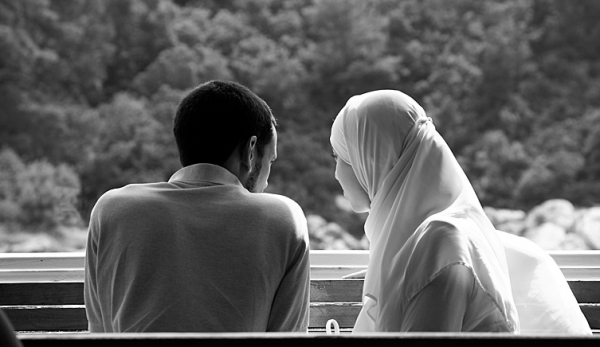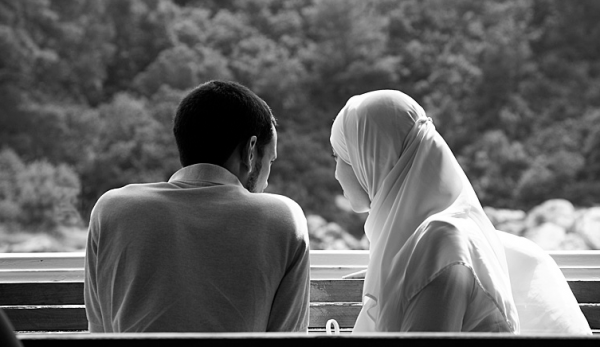
Modesty and gender segregation are typical features of traditional Muslim societies.

Last week I attended an event that was a first for Australia’s Muslim community aimed at addressing a problem that many Muslims living in the West will identify with (and some may have solved). The Muslim Marriage Matters seminar was the start of what a friend of mine termed the ‘Marriage Revolution’. An initiative that is, in the opinion of most single 20-35 year olds, long overdue and absolutely necessary. Like everything that pushes the boundaries of social convention it has caused, and I’m sure will continue to cause, much controversy.
Whether it’s because women are openly admitting they want to be wed or because the curtains have been removed and the supervised-marriage-intended ‘free mixing’ can commence, many in the community are unsettled by it. This piece does not intend to promote this program but rather address the broader issues that seem to be falling by the wayside in this discussion.
The idea of facilitating a meeting place for young singles that wish to be married is hardly revolutionary. Most communities had cottoned on to the need for such spaces long before we (Australian Muslims) had even caught wind of a potential ‘marriage crisis’, as another of my friends affectionately labels it. But what we need to remember is that this facilitation is but a band-aid solution. It is but one of many initiatives that need to take place to address the increasing number of singles in their late twenties and early thirties. And despite what we might think… ‘segregation’ is not the (only) problem.
We as a community need to identify what the cause(s) of this ‘marriage drought’ have been. We then need to undergo the difficult task of addressing them without framing this as a near moral panic.
I haven’t undergone any extensive research into the matter but from general conversations with other single women, part of the issue (on this end at least) is that men appear to be ‘intimidated’ by the caliber of some women. As we heard on Saturday night, this has a great deal to do with their education and the fact that they have invested time in establishing their careers. The argument often put forward in defence of such women is that this investment is circumstantial. That is, they were yet to encounter their naseeb and therefore occupied themselves with both educational and career-related pursuits.
Maybe it is circumstantial but that in no way dismisses the hard yards or the years of commitment such success requires. Nor does every decision in a young woman’s life center around whether or not she is married. We got an education because we believed it to be good for us.
It often makes me wonder why the career success of women requires defence in a way while that of a man in the same age bracket would not.
Nobody says, ‘he’s 27, he’s single because he’s career oriented.’ What we have in this instance is a challenge to what some might see as traditional gender roles, an issue that needs to be addressed pronto! Yes some women might be breadwinners. It was acceptable to the Prophet (SAW) that Khadijah (RA) would be the breadwinner, why isn’t it acceptable to us?
More than this we need to recognize that our parents also need to be brought into the marriage discussion. To tell us, a group of younger Gen X’s and mostly Gen Y’s that ‘marrying between cultures is acceptable in Islam’ is the definition of preaching to the converted. Whilst some of us may still be inclined to marry from within our cultural groups, either because of ease of access, reduction of difference or whatever, the overwhelming majority of us are (or at least in my experience) open to marrying someone from outside our own culture. As difficult as it must be to address this, we are not the only part of this equation.
Finally I believe it’s imperative that we do not raise our children, in particular our daughters, to believe that their worth lies in their marital status. We must teach our children that they are always whole, always complete insofar as they have Allah swt in their hearts.We must teach them to want a marriage, not a wedding, we must urge them toward achieving their goals independent of another human being and we must show them that not finding the enigmatic one is not a sign of failure or an indication that there is ‘something wrong’. At the same time we must teach them to pursue and fight for what they want, if they believe it is right, including their potential spouse. We must do all this whilst assuring them that whatever the outcome is, no matter how devastating or painful, no matter how joyful and elating it is only so because Allah has willed it.
And the only way to do that convincingly is to believe it.



